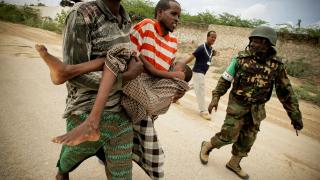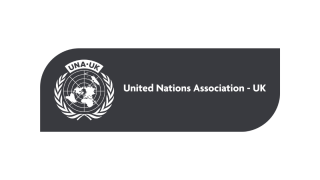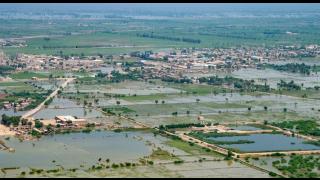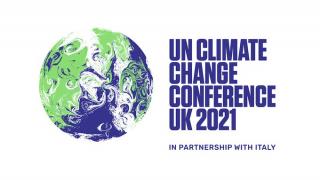
The deteriorating situation in the Horn of Africa is possibly the worst humanitarian crisis in a generation. About 12.4 million people in Somalia, Ethiopia, Kenya and Djibouti are in desperate need of assistance.
A combination of drought, crop failures and soaring food and fuel price has precipitated this emergency in a region racked by instability, past famine and serious development challenges. The UN, which has been tracking developments on the ground for months, expects the number of people affected to rise to about 15 million and is concerned that famine could spread to other countries, including Uganda. The UN Office for the Coordination of Humanitarian Affairs reported in May that the drought was not likely to abate until early 2012.
In August, famine was declared in three new areas of Somalia, where more than one third of the population has been affected. Hunger and increased instability have prompted a mass exodus to camps in Kenya and Ethiopia. !e UN Refugee Agency (UNHCR) says that between 1,300 and 1,500 Somalis a day have been arriving at Kenya's Dadaab camp. Both Ethiopia and Kenya are themselves facing massive problems, with 4.8 million and 3.7 million people respectively in need.
UN agencies have mobilised a mass relief operation, combining an immediate infusion of emergency aid with longer term interventions. The World Food Programme has provided food to nearly eight million people in the past five weeks and UNHCR is airlifting plastic sheeting, sleeping mats, jerry cans and kitchen utensils to Somalia's capital, Mogadishu. The Refugee Agency is also working with the UN Children's Fund to conduct screening and measles vaccinations for tens of thousands of children.
The UN Food and Agriculture Organization, meanwhile, is planning steps, such as seed distribution, irrigation and food storage, to boost agricultural recovery. However, huge challenges remain. The UN World Health Organization has warned of the high risk of disease in the refugee camps, where acute malnutrition, diarrhoea and respiratory tract infections are leading causes of mortality.
The camps have also seen a surge in sexual violence perpetrated by armed groups and security forces as well as refugees themselves. Humanitarian access in Somalia has been severely impeded by ongoing instability. The militant group Al-Shabaab, which controls swathes of territory, imposed a ban on foreign aid agencies in 2009 and has reportedly prevented civilians fleeing the area in search of help. Al-Shabaab has now left Mogadishu, easing the situation somewhat.
Most troubling though, is the acute shortfall in funding. In a year where unrest in the Middle East has put further strain on the UN's aid agencies, donors have responded sluggishly to this crisis. With political and media attention elsewhere, just 46% of the UN's initial appeal has been funded, and the organisation has since been forced to raise the appeal by $1.4bn to cope with the deteriorating situation. UN Emergency Relief Coordinator Baroness Amos has urged governments, the private sector and individuals to pull together, warning that ""the situation is far too serious to be treated as 'business as usual'"".






